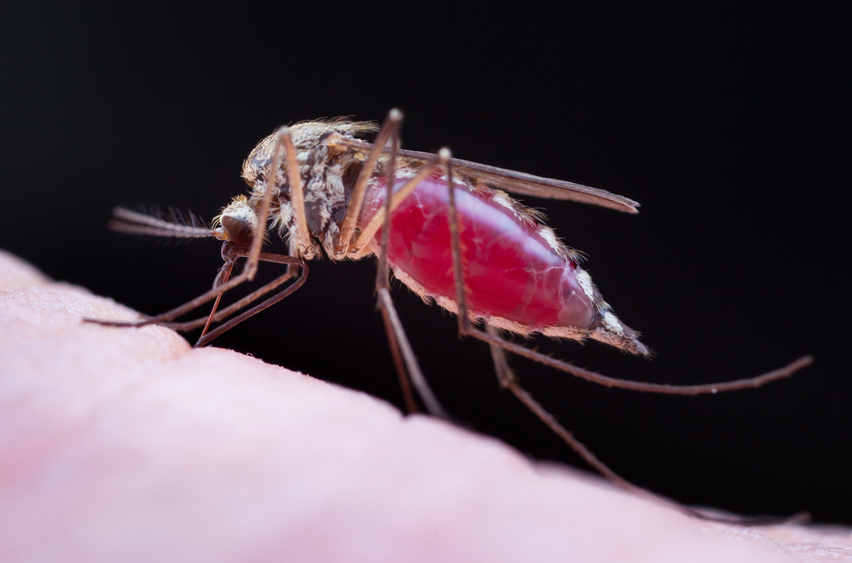Zika virus is primarily transmitted to people through the bite of an infected Aedes mosquito, which also transmits chikungunya, dengue and yellow fever.
The virus can be transmitted through sexual contact and has been detected in semen, blood, urine, amniotic fluids, saliva as well as body fluids found in the brain and spinal cord.
Before travelling to Zika affected areas
Travellers to areas with Zika virus outbreaks should seek up-to-date advice on potential risks and appropriate measures to reduce the possibility of exposure to mosquito bites and sexual transmission of Zika.
While in Zika-affected areas
Men and women should practice safer sex (including the consistent use of condoms) or abstinence to prevent Zika virus infection, human immunodeficiency virus (HIV), other sexually transmitted infections, and unwanted pregnancies.
To prevent mosquito bites during the trip, travellers are advised to:
- Wear clothing - preferably light coloured - that covers as much of the body as possible
- Use insect repellent: repellents may be applied to exposed skin or to clothing, and should contain DEET, (diethyltoluamide) or IR 3535 or Icaridin. Repellents must be used in strict accordance with the label instructions; if repellents and sunscreen are used together, sunscreen should be applied first and the repellent thereafter
- Use physical barriers such as regular or mesh screens or insecticide treated netting materials on doors and windows , or closing doors and windows
- Sleep under mosquito nets, especially during the day, when Aedes mosquitoes are most active
Upon return home
To prevent the onward transmission of Zika and adverse pregnancy and fetal outcomes, all returning travellers should practice safer sex, including through the correct and consistent use of condoms, or consider abstaining from sex for at least 6 months.
Travellers returning home should also continue to use insect repellent for at least three weeks to avoid being bitten and potentially spreading the infection to other people through mosquito bites.
Sexual partners of pregnant women should practice safer sex or abstain for at least the duration of the pregnancy.
Key updates
Countries and territories reporting mosquito-borne Zika virus infections for the first time in the past week: None
Malaysia has reported one locally acquired mosquito-borne Zika infection in the past week. Prior to this, the only evidence of Zika in Malaysia had been a scientific publication that had reported a case of Zika infection identified in Germany in an individual with travel history to Malaysia.
Countries and territories reporting microcephaly and other central nervous system (CNS) malformations potentially associated with Zika virus infection for the first time in the past week: None
Countries and territories reporting Guillain-Barré syndrome (GBS) cases associated with Zika virus infection for the first time in the past week: None
The Netherlands reported evidence of person-to-person transmission of Zika virus (probably via a sexual route) for the first time in the past week.
The results from the sequencing analysis of Zika virus cases in Singapore indicate that the virus belongs to the Asian lineage and likely evolved from the strain that was previously circulating in Southeast Asia. The recent cases in Singapore do not appear to be the result of imported virus from South America.
WHO continues to provide technical support to the Ministry of Health to ensure the 2016 Summer Paralympic Games are as safe as possible for all athletes, volunteers, visitors and residents. There is a low, but not zero, risk of Zika transmission in this setting. All persons should continue to follow guidance on avoiding Zika infection.
Updated WHO advice on protection against mosquito bites
The best protection from Zika virus is preventing mosquito bites. Women who are pregnant or planning to become pregnant and their sexual partners should take extra care to protect themselves from the bite of mosquitoes that transmit Zika. This can be done by:
- Wearing clothes (preferably light-coloured) that cover as much of the body as possible
- Using insect repellent: repellents may be applied to exposed skin or to clothing, and should contain DEET (diethyltoluamide) or IR 3535 or Icaridin which are the most common biologically active ingredients in insect repellents. Repellents must be used in strict accordance with the label instructions. They are safe for use by pregnant women
- Using physical barriers such mesh screens or treated netting materials on doors and windows
- Sleeping under mosquito nets day and night
- Identifying and eliminating potential mosquito breeding sites, by emptying, cleaning or covering containers that can hold even small amounts of water, such as buckets, flower pots and tyres
- National programmes can target polluted water bodies and sewage wastes (septic tank outlets need to be covered) with water and sanitation interventions
The fourth meeting of the Emergency Committee was held on 1 September 2016. Having considered the evidence presented, the Committee agreed that due to continuing geographic expansion and considerable gaps in understanding of the virus and its consequences, Zika virus infection and its associated congenital and other neurological disorders continues to be a Public Health Emergency of International Concern
For further information, please see the WHO website
Source: World Health Organisation







Please sign in or register for FREE
If you are a registered user on The Forum for Expatriate Management, please sign in